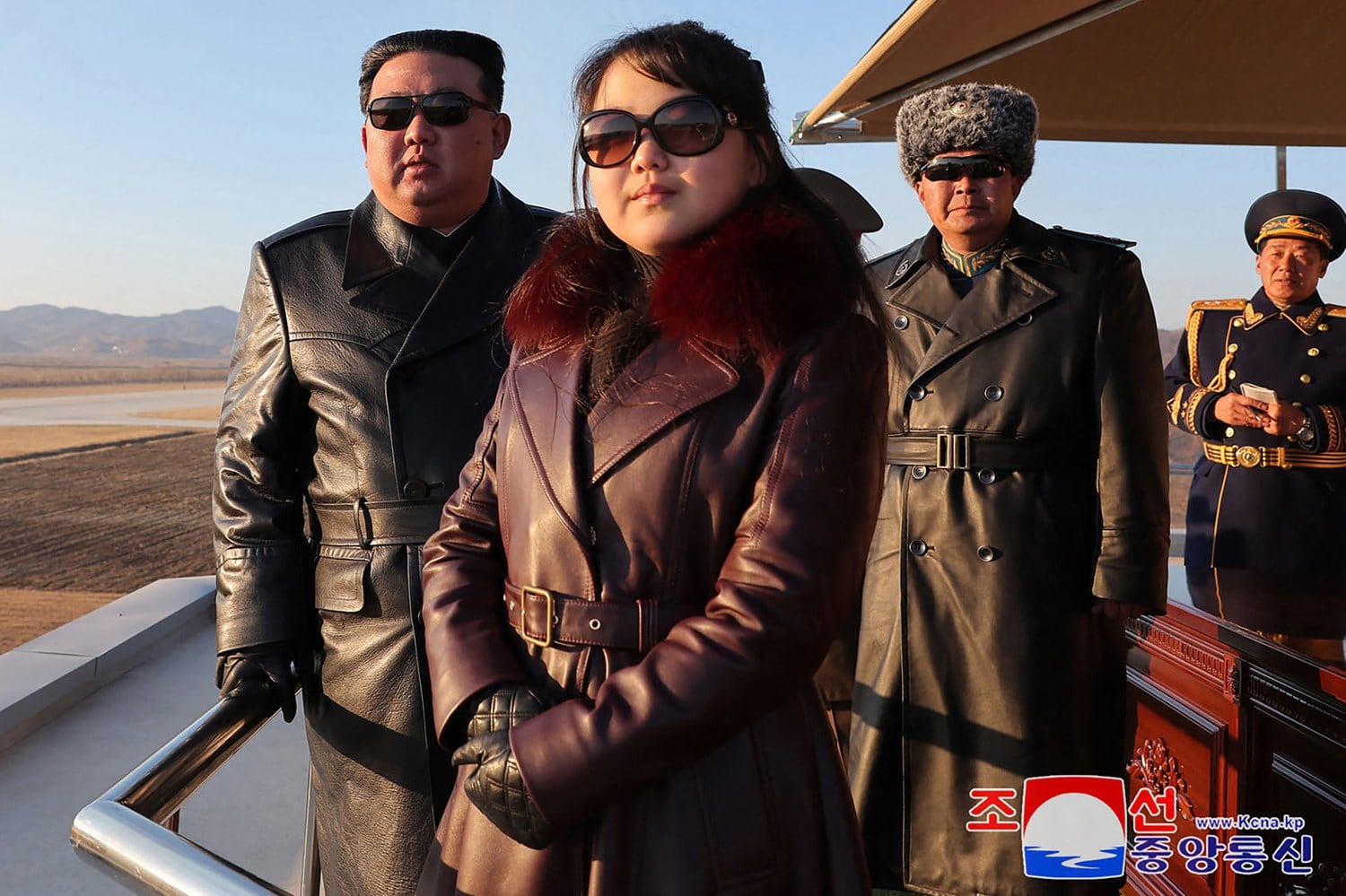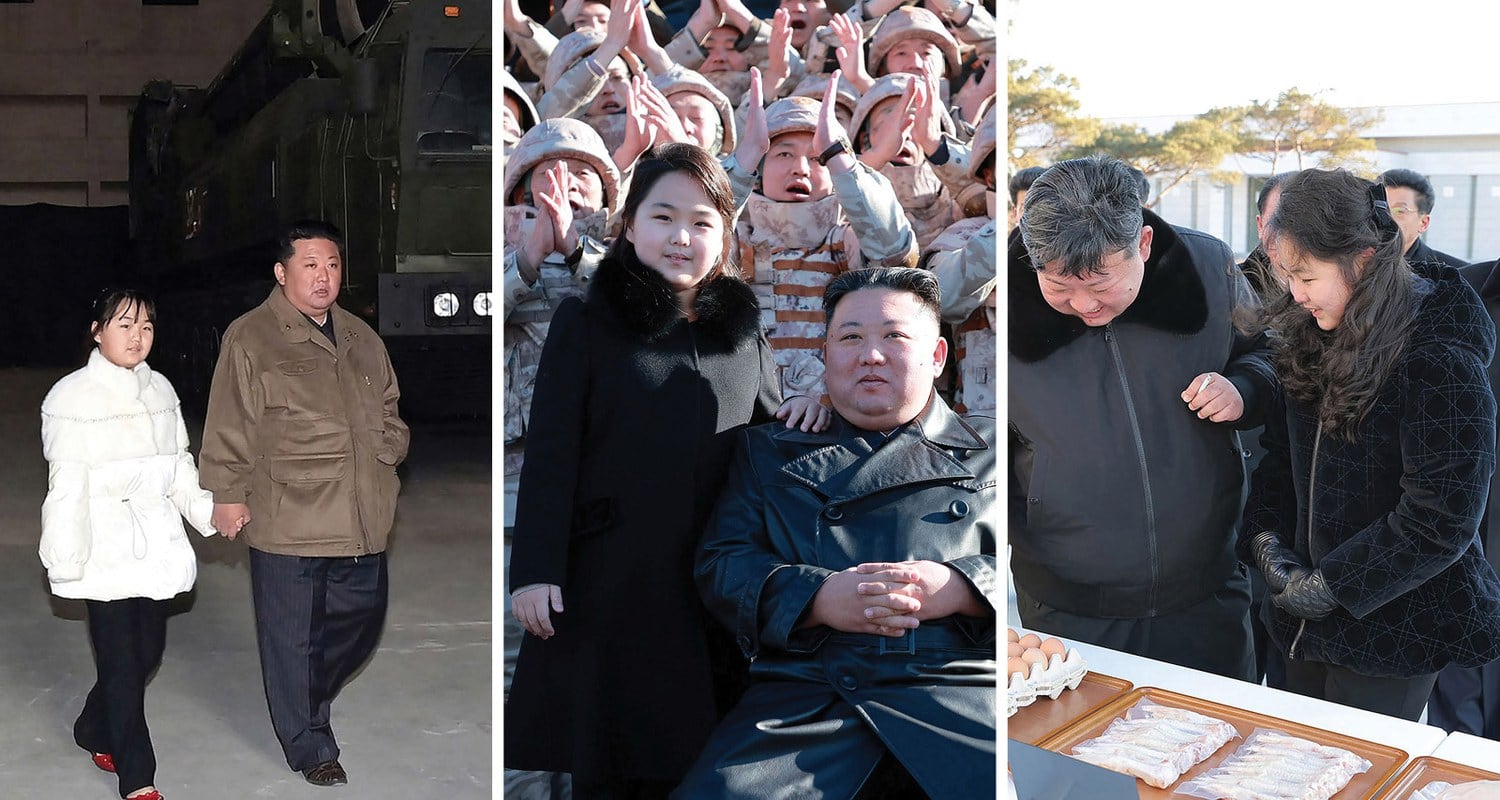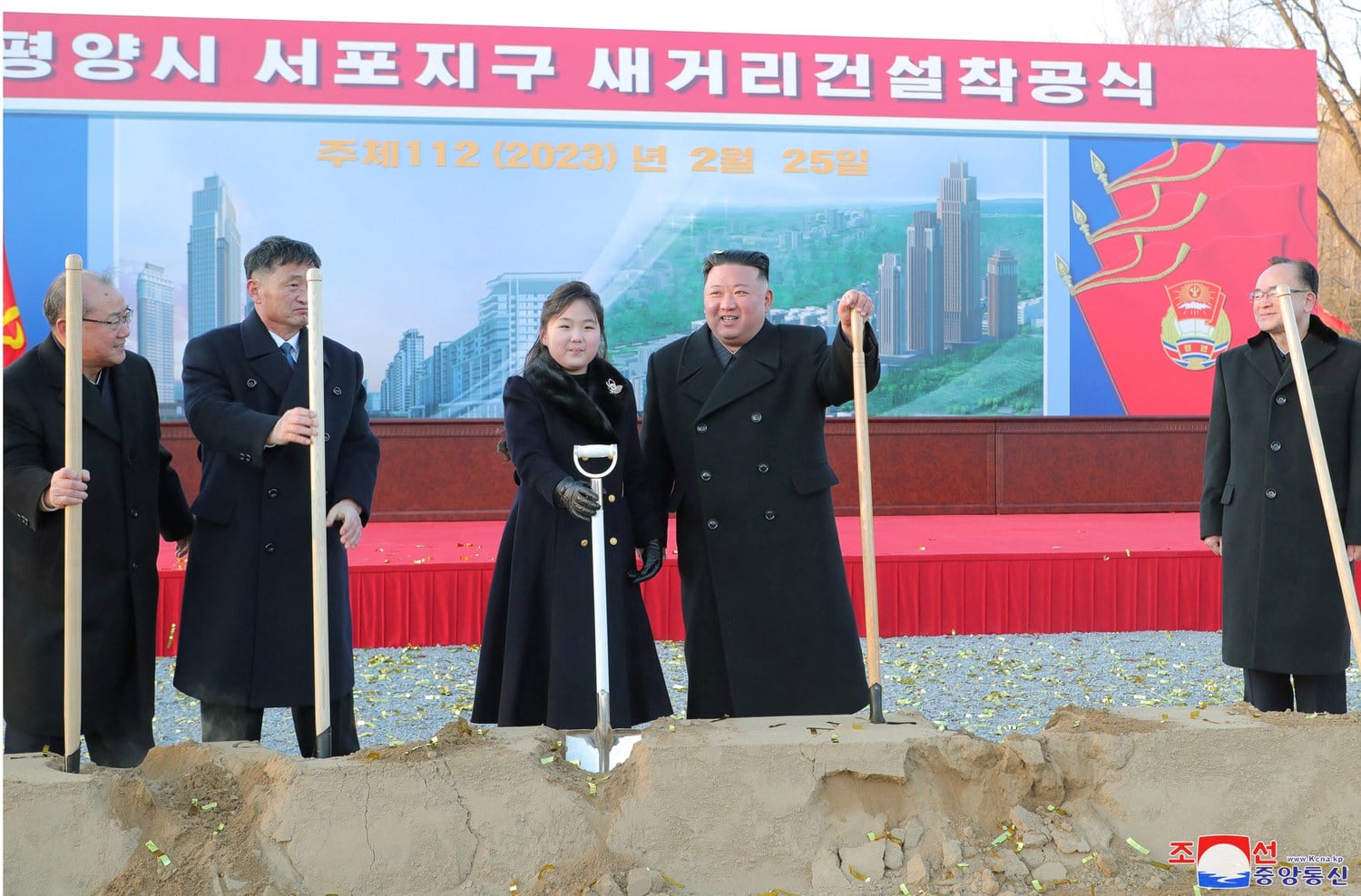South Korean nutritional supplements are becoming a desired luxury among the North Korean elite with parents wondering how they can get their kids to grow as fast as the young teen daughter of the supreme leader, sources told RFA.
Kim Ju Ae made her latest appearance in state media on April 25, when she attended the launch ceremony for a North Korean warship at Nampo shipyard.
In a photo of the event, where she’s pictured next to her father on the dockside, she appears about the same height as Kim Jong Un, who is believed to be about 5 feet 7 inches (170 centimeters) tall.
Even if Kim Ju Ae is wearing heels, that would make her significantly taller than most girls of her age. She’s thought to be 12 or 13. That’s based on an account from former NBA basketball star Dennis Rodman who says he saw Kim Jong Un’s daughter when she was a baby during a visit to the country in 2013.
Even in South Korea, where children are much better nourished, the average height of a 12-year-old girl is about 155 centimeters.
Ju Ae is certainly noticeably taller and appears more mature than in past photos. Her first public appearance was in November 2022, when as a chubby pre-teen, she accompanied her father on an inspection of what experts said was an intercontinental ballistic missile. She’s since cropped up at other events, including missile launches, official banquets and visits to troops.
“Three years ago, when the supreme leader’s daughter first appeared on TV, she still looked like a young child,” a source from North Hamgyong province, speaking on the condition of anonymity for security reasons, said.
“But recently, at the destroyer launch event, she had grown so much that her height was almost comparable to her father’s.”
“Residents, who have long struggled with food shortages, couldn’t focus much on their children’s growth,” the source continued. “But now, with the supreme leader’s child growing rapidly before their eyes, many residents have started to pay more attention to their own children’s development.”
Demand for South Korean nutritional supplements
According to the 2023 Joint Child Malnutrition Estimates released by UNICEF, WHO, and the World Bank, 16.8% of North Korean children under five were stunted due to chronic malnutrition as of 2022. This rate is nearly ten times higher than South Korea’s, where only 1.7% were stunted.
The stark contrast between the North Korean leader’s visibly well-nourished daughter and the malnourished general population has fueled some public resentment. But it has also stimulated interest in children’s height and physical development, multiple local sources say.
The source from North Hamgyong province said that interest has extended to nutritional supplements, particularly “Tenten chu” supplements from South Korea.
Tenten was launched in 1994, marketed as a vitamin-rich growth aid for children and for immunity and recovery from fatigue among adults. Some criticize its high sugar content.
According to the source, Tenten currently sells at four times the South Korean price in North Korea - the equivalent of about 500 yuan or $69. Despite that high price, it’s still in high-demand among high officials and others who can afford it, the source said.
A source from North Pyongan Province, who also sought anonymity for security reasons, said there’s another reason why people want their children to be taller: social status.
In North Korea, young men are generally expected to join the military after high school. Those who do not meet the required height standard are often rejected from conscription.
“These days, residents are increasingly focused on their children’s height,” the source said. “Previously, children in North Korea were considered socially disadvantaged due to their short stature, especially when they graduated from high school at 17 and could not even reach 150 cm (5 feet).”
“Some children couldn’t even join the military and were instead sent to work in construction or on farms. Naturally, those with short stature tended to feel socially inferior,” the source said.
The source said residents are resorting to growth supplements, even if it means forgoing other necessities.
The source added that the supplements from South Korea are sometimes re-packaged as Chinese products before being smuggled into North Korea.
Edited by Sungwon Yang and Mat Pennington



